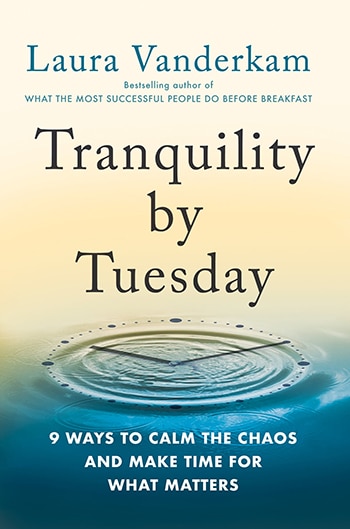A lot of people feel dissatisfied about how they spend their time. They often feel busy, but that busyness doesn’t add up to anything — not to fun, not to fulfillment, not to memories. My guest, Laura Vanderkam, has spent a lot of time thinking about and studying time, and last year she decided to run an experiment to see if the insights she had gained from that study could help average people get a better handle on their time. She had 150 people try out nine different time-management rules, which were sorted into three categories: Calm the Chaos, Make Good Things Happen, and Waste Less Time. She shares these field-tested strategies from what she called the Tranquility by Tuesday project in her new book by the same name.
A lot of people feel dissatisfied about how they spend their time. They often feel busy, but that busyness doesn’t add up to anything — not to fun, not to fulfillment, not to memories.
My guest, Laura Vanderkam, has spent a lot of time thinking about and studying time, and last year she decided to run an experiment to see if the insights she had gained from that study could help average people get a better handle on their time. She had 150 people try out nine different time-management rules, which were sorted into three categories: Calm the Chaos, Make Good Things Happen, and Waste Less Time. She shares these field-tested strategies from what she called the Tranquility by Tuesday project in her new book by the same name.
Today on the show, we talk about my seven favorite rules from Tranquility by Tuesday. Laura explains why you need to give yourself a bedtime, plan your week on Friday, make a “punch list” for tackling small tasks, and more. We also discuss the principle that can allow you to read a hundred books in a year.
